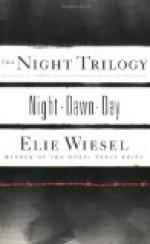[5]Buddha predicted that Matreya (Love incarnate) would be his successor (see Beal’s Fa Hian, page 137, note 2, and page 162; also Hardy’s Manual, page 386, and Oldenburgh’s Buddhism, page 386), who was to come at the end of five hundred years at the end of his Dharma (see Buddhism and Christianity, Lillie, page 2).
It is a remarkable fact that this successor is the most common object of worship among Buddhists, so that the most advanced Buddhists and the most earnest Christians have the same object of worship under different names.
BOOK VII.
Alone on his great mission going forth,
Down Phalgu’s valley he retraced
his steps,
Down past the seat where subtle Mara sat,
And past the fountain where the siren
sang,
And past the city, through the fruitful
fields
And gardens he had traversed day by day
For six long years, led by a strong desire
To show his Brahman teachers his new light.
But ah! the change a little time had wrought!
A new-made stupa held their gathered dust,
While they had gone where all see eye
to eye,
The darkness vanished and the river crossed.
Then turning sadly from this hallowed
spot—
Hallowed by strivings for a higher life
More than by dust this little mound contained—
He sought beneath the spreading banyan-tree
His five companions, whom he lately left
Sad at his own departure from the way
The sacred Vedas and the fathers taught.
They too had gone, to Varanassi[1] gone,
High seat and centre of all sacred lore.
The day was well-nigh spent; his cave
was near,
Where he had spent so many weary years,
And as he thither turned and upward climbed,
The shepherd’s little child who
watched the flock
His love had rescued from the bloody knife,
Upon a rock that rose above his path
Saw him pass by, and ran with eagerness
To bear the news. Joy filled that
humble home.
They owed him all. The best they
had they brought,
And offered it with loving gratitude.
The master ate, and as he ate he taught
These simple souls the great, the living
truth
That love is more than costly sacrifice;
That daily duties done are highest praise;
That when life’s duties end its
sorrows end,
And higher joys await the pure in heart.
Their eager souls drank in his living
words
As those who thirst drink in the living
spring.
Then reverently they kissed his garment’s
hem,
And home returned, while he lay down to
sleep.
And sweetly as a babe the master slept—
No doubts, no darkness, and no troubled
dreams.
When rosy dawn next lit the eastern sky,
And morning’s grateful coolness
filled the air,
The master rose and his ablutions made.
With bowl and staff in hand he took his
way
Toward Varanassi, hoping there to find
The five toward whom his earnest spirit
yearned.




